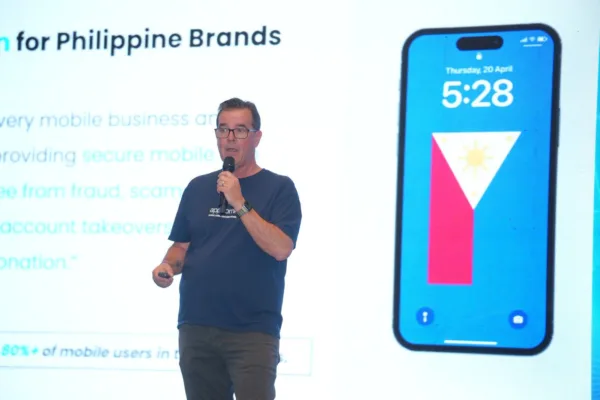Artificial intelligence may be driving the future of work — but it’s also arming cybercriminals with smarter, stealthier tools. As the Philippines marks Cybersecurity Awareness Month this October, technology experts are warning that cyberattacks are becoming harder to detect and more damaging to businesses and individuals alike.
In 2024 alone, the Cybercrime Investigation and Coordinating Center (CICC) logged over 10,000 cybercrime complaints nationwide — ranging from phishing scams and identity theft to deepfake-related fraud.
The surge underscores a growing reality: as Filipino enterprises go digital, their exposure to cyber risks rises just as fast. “Attackers aren’t reinventing the wheel, but they are sharpening it,” said Alex Holland, Principal Threat Researcher at HP Security Lab. “By blending familiar methods like phishing with stealthier delivery techniques, today’s cybercriminals are raising the bar for defenders.”

Attackers aren’t reinventing the wheel, they’re sharpening it
New tactics for a new threat landscape
HP’s latest Threat Insights Report reveals how cybercriminals are now using AI-driven precision tools. It also found that attackers are not just multiplying, they’re refining their tactics, making cyber threats harder to spot and stop.
Among the top emerging attack methods include:
- Fake PDF invoice lures – Highly realistic malware-laced PDFs that mimic Adobe Reader interfaces and trick users into activating hidden code.
- Malware hidden in images – Harmful software concealed within pixel data, then erased to cover digital traces.
- Living-off-the-land (LOTL) tactics – The use of legitimate Windows tools to disguise malicious activity and evade antivirus detection.
These subtle, AI-enhanced tactics exploit everyday habits — from downloading attachments to opening innocuous files — making them particularly dangerous for small businesses and remote workers.
Cybersecurity as a growth enabler

For Ida Evina Ong-Co, Managing Director of HP Philippines, cybersecurity is no longer just an IT issue. It’s now a core driver of business resilience and trust.
“Cybersecurity is now a growth enabler, not just a safeguard,” Ong-Co said. “As Filipino businesses embrace AI and hybrid work, they need solutions that anticipate threats before they strike. At HP, our goal is to build devices and systems that are secure by design — enabling organizations to innovate and grow with confidence.”
The message is particularly urgent for micro, small, and medium enterprises (MSMEs), which make up 99.6% of all businesses in the Philippines.
A recent Cisco study found that more than half of local small businesses experienced at least one cyberattack in the past year. Many lack the dedicated IT resources or expertise to respond effectively.
Government steps up cyber defense

The Department of Information and Communications Technology (DICT), through the CICC, has been ramping up its cybersecurity initiatives — from public awareness campaigns to capacity-building programs for private and public sector organizations.
Under its National Cybersecurity Plan 2025, the DICT is pushing for stronger collaboration between government, academia, and the private sector to enhance the country’s cyber resilience. The agency is also expanding cybercrime reporting hotlines, improving incident response coordination, and supporting digital upskilling among local businesses and government offices.
During his tenure, former DICT Secretary Ivan John Uy has repeatedly emphasized the importance of building a “cyber-secure Philippines,” urging organizations to treat cybersecurity as a shared national responsibility.
“Technology is evolving rapidly, but so are the threats,” Uy has said in a media briefing. “We must empower every Filipino and every organization with the tools, skills, and awareness to stay safe online.” He also encouraged the public to visit sites that regularly educate people on the prevalent online scams often used to secure and protect themselves from being victimized.
Building security from the core

HP, for its part, is addressing the threat by embedding protection directly into its products. The company’s HP Wolf Security suite integrates self-healing firmware, AI-powered threat detection, and hardware-enforced protection — allowing devices to automatically contain and neutralize attacks in real time.
So far, HP Wolf Security users have safely clicked on over 55 billion risky links and files — with no reported breaches.
As AI and hybrid work reshape the future of business, experts agree that a “defense-in-depth” approach — combining endpoint security, employee training, and secure connectivity — is key.
This Cybersecurity Awareness Month, the message is clear: protecting data isn’t just about avoiding risk. It’s about building trust, enabling innovation, and ensuring that as technology advances, no one is left vulnerable online.
HP Inc. (NYSE: HPQ) is a global technology leader operating in over 170 countries, offering sustainable, secure solutions for personal computing, printing, hybrid work, and more. For details, visit www.hp.com








